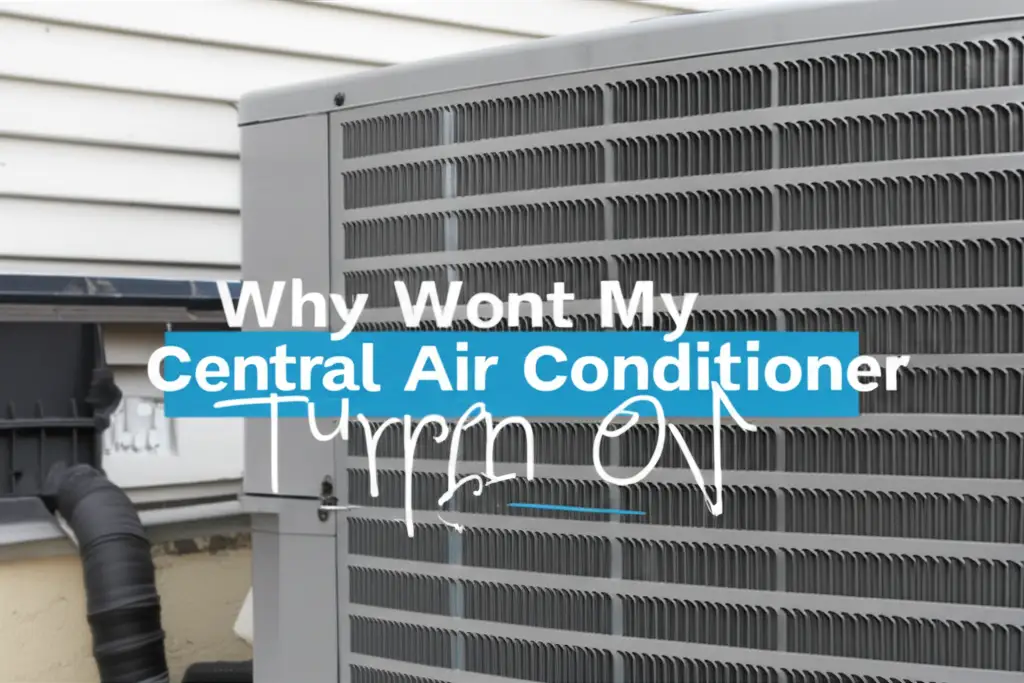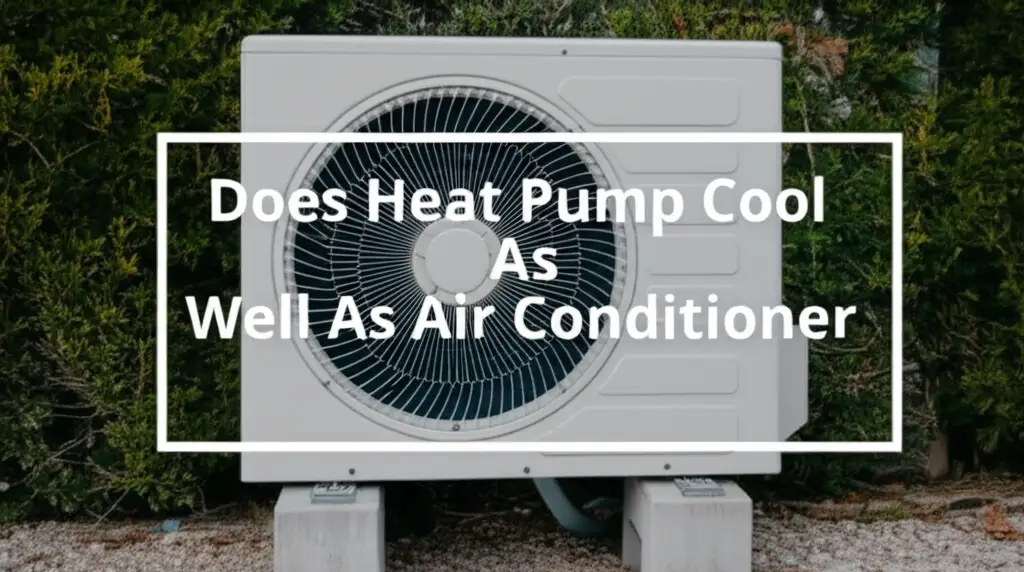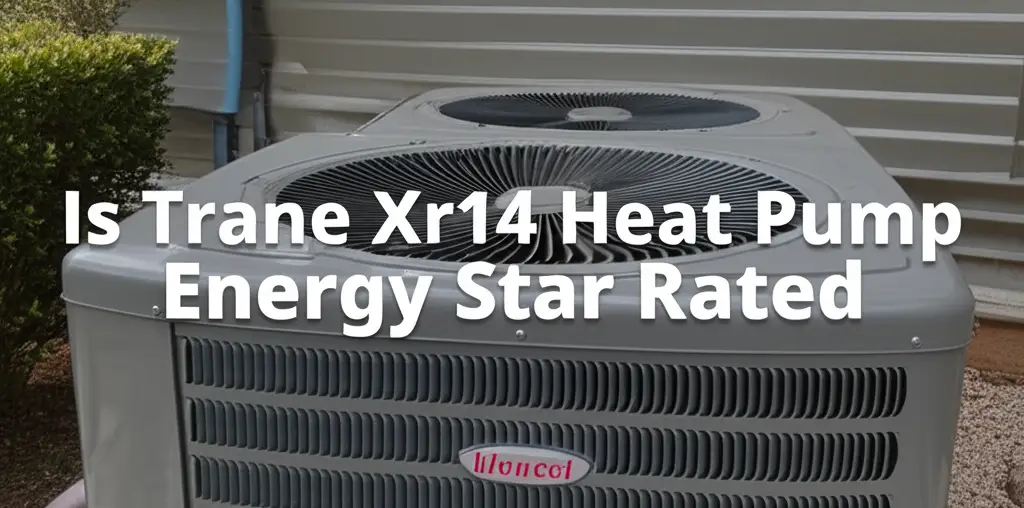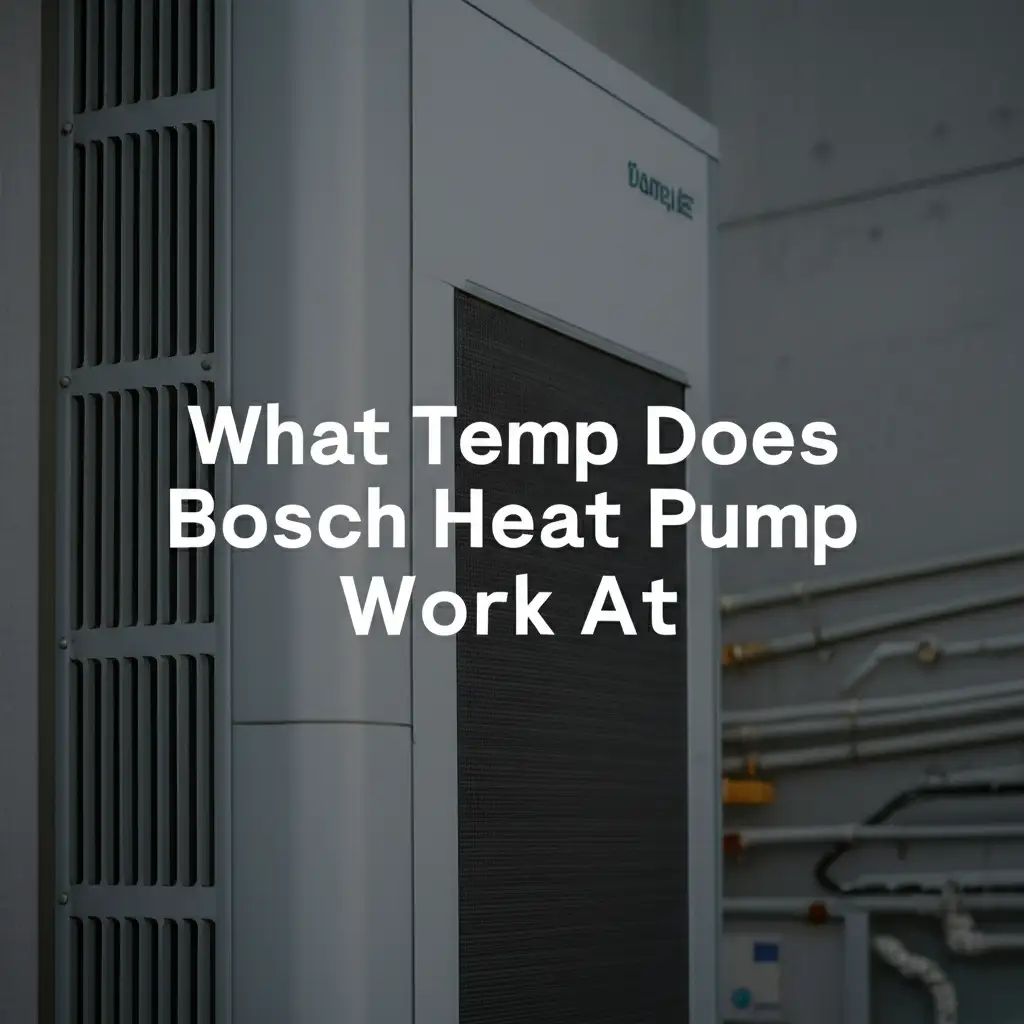· Davia Murnell · HVAC Systems · 16 min read
Why Does My Central Air Conditioner Keep Tripping The Breaker
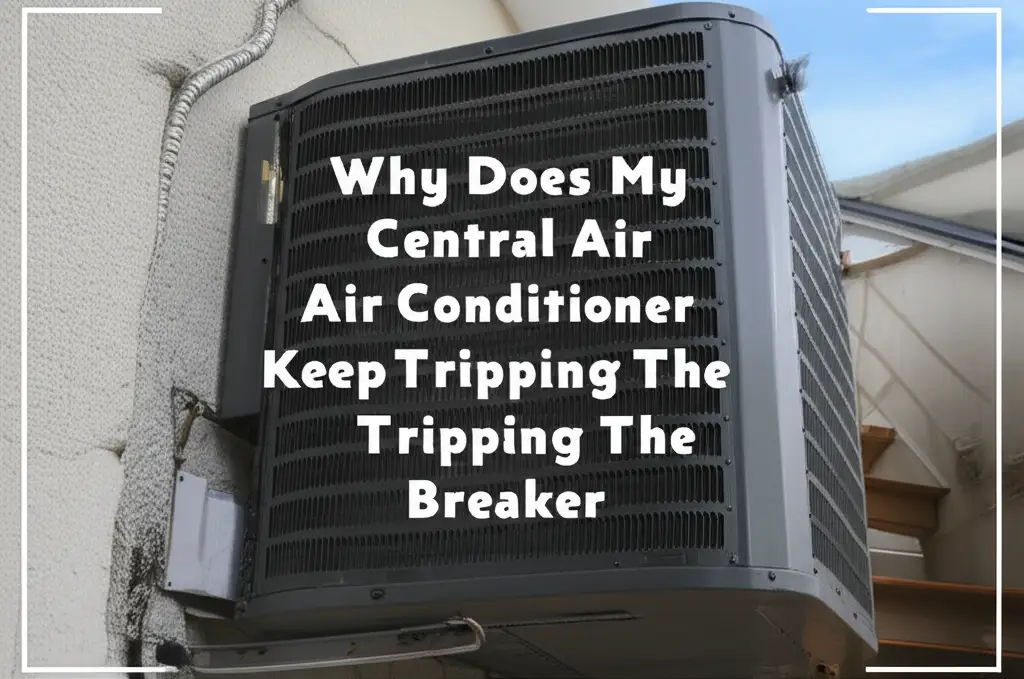
Why Your Central Air Conditioner Keeps Tripping the Breaker
Picture this: The summer heat is on, and your home feels like an oven. You rush to turn on your central air conditioner, hoping for a blast of cool air. Instead, you hear a click, and the house goes silent. The power is out. You check the electrical panel and find the breaker for your AC unit has tripped again. This is a common and frustrating problem for many homeowners. Understanding why your central air conditioner keeps tripping the breaker is important. It helps you find a solution.
A tripping breaker means an electrical circuit has received too much power. It might also show a short circuit. The breaker trips to protect your home’s wiring from damage. It also protects the appliance itself. Your AC unit uses a lot of electricity. Minor issues can easily overload its dedicated circuit. This guide explains why your central air conditioner keeps tripping the breaker. We will explore common culprits. You will learn about simple fixes. We also discuss when to call a professional for help.
Takeaway
- Check Simple Solutions First: Before anything else, inspect your air filter. A dirty filter often causes problems. Clear away any debris around your outdoor unit.
- Understand Electrical Loads: Learn about your AC’s dedicated circuit. Avoid running too many heavy appliances at once.
- Inspect for Obvious Issues: Look for ice on coils or a humming noise from your outdoor unit. These are signs of specific issues.
- Prioritize Safety: Always turn off power at the breaker before any inspection or repair. Do not touch exposed wires.
- Call a Pro for Complex Problems: Electrical faults, compressor issues, or refrigerant leaks need expert help. Do not attempt these repairs yourself.
Why does my central air conditioner keep tripping the breaker?
Your central air conditioner keeps tripping the breaker because of an electrical overload, a short circuit, or a ground fault. Common reasons include dirty filters, blocked outdoor coils, failing capacitors, a struggling compressor, or issues with the wiring itself. The breaker activates to prevent damage or fire.
Understanding Your AC System and Circuit Breaker
Your central air conditioner is a powerful appliance. It needs a specific amount of electricity to run safely. This power comes from your home’s electrical panel. Each major appliance, like your AC, usually has its own dedicated circuit. This circuit has a circuit breaker. The circuit breaker is a safety device. It monitors the flow of electricity.
When the breaker trips, it means it detected an issue. It can detect too much current flowing. This is an overload. It can also detect a sudden surge, which is a short circuit. When it trips, it cuts off power to that circuit. This prevents damage to the wiring. It also prevents harm to your AC unit. It helps prevent electrical fires. A breaker that trips often needs attention. Ignoring it can cause more serious problems for your electrical system. It can also damage your air conditioner.
Most central AC units require a 240-volt circuit. These circuits often use a double-pole breaker. This breaker takes up two slots in your electrical panel. The amperage rating of the breaker must match the AC unit’s requirements. For example, a common central AC unit might need a 30-amp or 40-amp breaker. If the breaker is too small for the AC’s load, it will trip frequently. If the breaker is faulty, it might trip even when there is no actual electrical issue. Understanding this basic setup helps you figure out why your AC might be causing trouble.
Common Culprits Behind a Tripped AC Breaker
Many things can make your central air conditioner trip its circuit breaker. Some are easy to fix. Others need a professional. Identifying the common culprits is the first step. You can save time and money by checking these items yourself. These issues generally cause the AC unit to draw more current than the breaker can handle. This excess current causes the breaker to trip.
One common problem is a system working too hard. When your AC unit struggles, it pulls more electricity. This extra electrical draw can push the circuit past its safe limit. Another common issue involves dirty components. Dirt can reduce airflow. It can make parts work harder. Sometimes, the problem is with the electrical parts themselves. Wires can become loose. Capacitors can fail. The compressor, the main engine of your AC, can also develop problems. Each of these issues puts strain on the electrical system. They can all lead to a tripped breaker.
Think of your breaker as a watchful guard. It trips to alert you to a problem. It protects your home. It needs your attention. Ignoring a tripping breaker can cause damage. It could even be dangerous. We will look at specific causes in detail. This helps you understand how to address each one. Knowing what to look for makes troubleshooting easier.
Dirty Air Filters and Coils: Simple Maintenance Matters
One of the most common reasons your central air conditioner keeps tripping the breaker is poor airflow. This often comes from dirty air filters or clogged evaporator and condenser coils. Your AC system needs a clear path for air to move. When air cannot flow freely, the unit struggles to cool your home. This struggle makes the unit draw more power. It overloads the circuit, and the breaker trips.
A dirty air filter is a major culprit. The filter catches dust, dirt, and debris. Over time, it becomes clogged. This blockage restricts the air entering your indoor unit. The blower fan has to work harder to pull air through the dirty filter. This extra effort requires more electricity. The increased electrical demand can cause your breaker to trip. Replacing or cleaning your air conditioner filter regularly is a simple but important maintenance step. Most experts suggest checking your filter monthly. Change or clean it every 1 to 3 months.
Dirty coils also cause problems. The evaporator coil is inside your home. It absorbs heat from the air. The condenser coil is in your outdoor unit. It releases heat outside. Both coils can get dirty. Dirt, dust, and grime build up on the coil fins. This layer acts as an insulator. It prevents proper heat transfer. When coils are dirty, your AC unit cannot efficiently cool. The compressor and fans run longer. They work harder. This increased workload leads to higher electrical draw. Higher electrical draw means a greater chance of tripping the breaker. Regular cleaning of your air conditioner coils helps maintain efficiency. You can also perform general air conditioner cleaning to keep the whole unit in good shape.
Fan Motor Issues and Electrical Wiring Problems
Your central air conditioner has two main fan motors. The blower fan motor is inside your home. It pushes cool air through your ducts. The condenser fan motor is in your outdoor unit. It pulls air over the condenser coils. If either of these motors has problems, your AC can trip the breaker. A failing motor draws too much current. This happens when bearings wear out. It also happens when the motor windings degrade. A motor that struggles to start or run can cause an immediate overload.
Sometimes, the fan blades themselves are the problem. If the blades are bent, or if debris gets caught in them, the motor works harder. This extra effort increases the electrical load. Listen for unusual noises coming from your indoor or outdoor unit. Grinding, squealing, or humming sounds can indicate a motor issue. If the outdoor fan is not spinning, but the compressor is running, this is a clear sign of a motor problem. This issue creates excessive heat and current draw. This will trip the breaker quickly. You might need to check your outdoor unit. Make sure nothing is blocking the fan blades.
Electrical wiring problems are also common culprits. Loose wires, frayed insulation, or corroded connections can cause issues. A loose wire connection can create resistance. This resistance generates heat. It also causes voltage drops. This makes components draw more current to compensate. Frayed wires can lead to a short circuit. A short circuit is when electricity takes an unintended path. This creates a sudden, massive surge of current. The breaker will trip instantly to prevent damage. Rodents can chew through wires. This also causes short circuits. Inspect visible wiring around your indoor and outdoor units. If you see any damaged or loose wires, do not touch them. Turn off the power at the breaker first. Then call an electrician or HVAC technician. Electrical issues can be very dangerous. They require professional attention. You should also ensure your central air conditioner unit is clean to prevent debris from causing damage to internal components and wiring.
Failing Capacitors and Compressor Overload
Two critical components of your central air conditioner are the capacitor and the compressor. Problems with either of these can easily cause your breaker to trip. The capacitor is a small, cylindrical component. It stores an electrical charge. It provides a quick burst of energy to help start the fan motor and the compressor. If the capacitor fails, these components cannot start correctly. They may hum and struggle. They will draw a lot of current without moving. This heavy draw immediately trips the breaker.
A failing capacitor might show visible signs. It could be swollen at the top. It might have a leak. Your AC unit might try to start, hum loudly, and then shut down. Or it might not start at all. If the fan spins slowly or needs a push to start, this also points to a bad capacitor. Replacing a capacitor is a relatively simple fix for a trained technician. However, capacitors hold a powerful electrical charge. They can cause a shock. Do not try to replace one yourself unless you are qualified.
The compressor is the heart of your AC system. It pumps refrigerant through the coils. It is a large, powerful motor. It requires a lot of electricity to run. If the compressor is failing, it can draw excessive current. This immediately trips the breaker. Compressor issues are often expensive to fix. They can stem from several problems. Low refrigerant levels can make the compressor work harder. The compressor might also overheat. It can also suffer from internal electrical shorts. If your central air conditioner is running but not cooling the house, a struggling compressor could be the reason.
Another issue related to the compressor is short cycling. This is when the unit keeps turning on and off frequently. This rapid cycling puts immense stress on the compressor. It causes it to draw high starting current many times. This can also lead to breaker trips. Short cycling can be due to a thermostat problem, low refrigerant, or an oversized unit. A hard-starting compressor, due to age or damage, is a common reason for a breaker to trip upon startup.
Troubleshooting Common Electrical Overloads
Sometimes, the issue is not with the AC unit itself, but with the electrical supply. Electrical overloads occur when too many appliances draw power from a single circuit. While central AC units usually have dedicated circuits, issues can still arise. If your AC shares a circuit with other high-power appliances, it might trip the breaker. This is less common for central AC, but it can happen if the original wiring was improper. The breaker might also be faulty. A breaker can weaken over time. It can trip prematurely without a real overload.
Ensure your AC unit is on a dedicated circuit. Check your electrical panel. The breaker for your AC should be clearly labeled. It should be the only one for that unit. If other outlets or appliances are connected to the same breaker, they could cause an overload. An electrician can verify if your AC has a dedicated circuit. They can also ensure the breaker size is correct for your specific AC model. An AC unit needs a breaker with the correct amperage rating. If the breaker is too small, it will trip frequently, even when the AC is running normally.
Sometimes, voltage fluctuations can also cause breaker trips. Power surges or drops from the utility company can put stress on your AC’s electrical components. While less common, these external factors can lead to an overload condition. You might notice lights flickering or other appliances behaving strangely if this is the case. A faulty breaker itself can also be the problem. Breakers can wear out. They can become sensitive. They might trip even when there is no actual fault. If you have checked everything else and the breaker still trips, consider having an electrician test the breaker. They can confirm if it is working correctly. They can replace it if it is faulty. Remember that electrical work needs care. It is always best to consult a professional for electrical system diagnostics.
When to Call a Professional HVAC Technician
While some AC tripping issues are simple fixes, many require the expertise of a professional HVAC technician. Electrical problems, refrigerant issues, and compressor failures fall into this category. Attempting complex repairs yourself can be dangerous. It can also cause more damage to your expensive AC system. Knowing when to call a pro saves you money and ensures safety.
You should call a professional if you suspect electrical issues. These include frayed wires, burnt smells, or sparking. An electrician or HVAC technician has the tools to diagnose electrical faults safely. They can identify short circuits or ground faults. They can repair or replace faulty wiring. They can also test your circuit breaker to ensure it functions properly. Do not try to fix significant electrical problems yourself. The risk of shock or fire is too high.
Refrigerant leaks are another reason to call an expert. Low refrigerant levels make the compressor work harder. This can lead to frequent breaker trips. Refrigerant is a chemical. It needs proper handling. Only certified technicians can add or remove refrigerant. They can also find and fix leaks. They have the right equipment. They can ensure the system has the correct charge. Compressor problems, as discussed, are often serious. They are also expensive. A technician can diagnose if your compressor is failing. They can tell you if it needs replacement. This is a big job. It requires specialized tools and knowledge.
If you have tried the basic troubleshooting steps, and your AC still trips the breaker, it is time for professional help. If the outdoor unit has ice on its lines, this indicates a refrigerant issue or airflow problem. It needs a technician. If you hear loud noises or smell burning, shut off the AC immediately. Then call for service. Remember that professional HVAC maintenance can prevent many of these issues. They can spot problems before they become critical. For instance, understanding why a window air conditioner might trip a breaker shares some common causes, but central AC units often have more complex electrical systems. Trust your instinct. If you feel uncomfortable, call an expert.
FAQs About Your Central Air Conditioner Tripping the Breaker
Q1: Why does my AC trip the breaker only when it starts?
When your AC trips the breaker only at startup, it often points to a hard-starting component. The compressor or fan motor draws a very high current for a moment to get going. A failing capacitor is a common cause. It cannot provide the necessary jolt. The compressor then struggles, pulling too much electricity. This immediate surge causes the breaker to trip.
Q2: Can a dirty air filter really cause my AC breaker to trip?
Yes, a very dirty air filter can definitely cause your AC breaker to trip. A clogged filter blocks airflow. This makes your AC unit work much harder to move air. The blower motor draws more power to compensate. This increased electrical demand can overload the circuit. It then causes the breaker to trip.
Q3: How do I reset a tripped AC breaker safely?
To reset a tripped AC breaker, first turn off your AC unit at the thermostat. Go to your electrical panel. Find the tripped breaker. It will be in the “off” position or halfway between “on” and “off.” Push it firmly to the “off” position, then push it back to the “on” position. Wait a few minutes before turning your AC back on.
Q4: My AC breaker keeps tripping after a few minutes, not instantly. What does this mean?
If your AC breaker trips after a few minutes, it often indicates an overheating issue or a component struggling under load. The compressor or motor might be working too hard. This could be due to dirty coils, low refrigerant, or a failing component. The problem worsens as the system runs. This leads to the breaker tripping after some time.
Q5: Is it safe to keep resetting my AC breaker?
No, it is not safe to keep resetting your AC breaker without addressing the cause. A tripping breaker is a warning sign. It indicates an underlying electrical problem or a failing component. Repeatedly resetting it can damage your AC system. It can also cause dangerous electrical hazards, including wiring damage or fire. Get the issue checked by a professional.
Q6: Can bad outdoor unit wiring cause the breaker to trip?
Yes, faulty wiring in the outdoor unit is a common cause of breaker trips. Loose connections, corroded wires, or damaged insulation can lead to short circuits or ground faults. These issues cause a sudden surge in current. This will immediately trip the breaker. Exposed wires also pose a significant safety risk.
Conclusion
Your central air conditioner tripping the breaker is a clear signal. It tells you something is wrong with your system. Ignoring this warning can lead to more significant damage. It could even create safety hazards. We explored the common culprits. These include dirty filters, issues with fan motors, and problems with capacitors or the compressor. We also looked at electrical wiring faults and general overloads.
Remember to start with simple checks. Always turn off the power at the breaker before any inspection. A clean air filter is often the first step. Inspecting your outdoor unit for debris is also important. If you find loose wires or signs of a short circuit, do not attempt to fix them yourself. These electrical issues require a professional. If your AC makes strange noises, smells like something is burning, or still trips the breaker after basic checks, it is time to call an HVAC technician. They have the expertise to diagnose and safely repair complex problems. Addressing the issue promptly will ensure your central air conditioner runs efficiently and safely. It also restores comfort to your home. Taking action now protects your system and your peace of mind.
- AC breaker trip
- air conditioner problems
- HVAC troubleshooting


